- Home
- Packaging Products
- Plastic Feed Packaging Market Size, Future Growth and Forecast 2033
Plastic Feed Packaging Market Size, Future Growth and Forecast 2033
Plastic Feed Packaging Market Segments - by Material Type (Polyethylene, Polypropylene, Polyethylene Terephthalate, Others), Application (Livestock Feed, Pet Food, Aquaculture Feed, Others), Packaging Type (Bags, Pouches, Containers, Others), End-User (Farmers, Feed Manufacturers, Retailers, Others) - Market Dynamics, Growth Opportunities, Strategic Drivers, and PESTLE Outlook (2025–2033)
Plastic Feed Packaging Market Outlook
The plastic feed packaging market was valued at $3.5 billion in 2024 and is projected to reach $5.8 billion by 2033, growing at a CAGR of 5.2% during the forecast period 2025–2033. This market is driven by the increasing demand for durable and cost-effective packaging solutions in the animal feed industry. The growth in livestock farming and pet ownership has significantly boosted the demand for feed packaging, which in turn is propelling the market for plastic feed packaging. The versatility of plastic materials, which can be molded into various shapes and sizes, makes them an ideal choice for packaging different types of feed. Additionally, the ability of Plastic Packaging to protect feed from moisture, pests, and contamination further enhances its appeal among end-users.
However, the market faces challenges due to growing environmental concerns and stringent regulations regarding plastic usage. The increasing awareness about the environmental impact of plastic waste is pushing manufacturers to explore sustainable alternatives, which could restrain market growth. Despite these challenges, the market holds significant growth potential due to the ongoing innovations in biodegradable and recyclable plastic materials. These advancements are expected to open new avenues for market players, allowing them to cater to the evolving consumer preferences for eco-friendly packaging solutions.
Report Scope
| Attributes | Details |
| Report Title | Plastic Feed Packaging Market Size, Future Growth and Forecast 2033 |
| Base Year | 2024 |
| Historic Data | 2017-2023 |
| Forecast Period | 2025-2033 |
| Number of Pages | 126 |
| Material Type | Polyethylene, Polypropylene, Polyethylene Terephthalate, Others |
| Application | Livestock Feed, Pet Food, Aquaculture Feed, Others |
| Packaging Type | Bags, Pouches, Containers, Others |
| End-User | Farmers, Feed Manufacturers, Retailers, Others |
| Customization Available | Yes* |
Opportunities & Threats
The plastic feed packaging market presents numerous opportunities, primarily driven by the rising demand for innovative and Sustainable Packaging solutions. As consumers become more environmentally conscious, there is a growing preference for packaging that minimizes environmental impact. This trend is encouraging manufacturers to invest in research and development to create biodegradable and recyclable plastic packaging options. Additionally, the increasing adoption of advanced technologies such as smart packaging, which enhances product shelf life and provides real-time information about the product, is expected to drive market growth. These technological advancements not only improve the functionality of packaging but also offer a competitive edge to companies in the market.
Another significant opportunity lies in the expanding livestock and pet food industries. With the global population increasing and dietary preferences shifting towards protein-rich diets, the demand for animal feed is on the rise. This surge in demand is directly impacting the need for efficient and reliable feed packaging solutions. Moreover, the growing trend of pet humanization, where pets are treated as family members, is leading to increased spending on premium pet food products. This trend is expected to boost the demand for high-quality plastic feed packaging that ensures product safety and freshness.
Despite the promising opportunities, the market faces certain threats that could hinder its growth. One of the primary challenges is the stringent regulations imposed by governments worldwide to curb plastic pollution. These regulations are pushing manufacturers to reduce their reliance on traditional plastic materials and explore alternative solutions. Additionally, the fluctuating prices of raw materials used in plastic production can impact the profitability of manufacturers. The volatility in crude oil prices, which directly affects the cost of plastic resins, poses a significant threat to the market. To mitigate these risks, companies are focusing on developing cost-effective and sustainable packaging solutions that comply with regulatory standards.
The plastic feed packaging market is characterized by intense competition, with several key players vying for market share. The competitive landscape is shaped by factors such as product innovation, quality, pricing, and distribution networks. Companies are increasingly focusing on expanding their product portfolios and enhancing their production capabilities to gain a competitive edge. Strategic partnerships and collaborations are also common in this market, as companies seek to leverage each other's strengths and expand their reach in new markets.
Some of the major players in the plastic feed packaging market include Amcor plc, Berry Global Inc., Mondi Group, Sealed Air Corporation, and Sonoco Products Company. These companies have established themselves as leaders in the market through their extensive product offerings and strong distribution networks. Amcor plc, for instance, is known for its innovative packaging solutions that cater to a wide range of industries, including animal feed. The company's focus on sustainability and its commitment to reducing plastic waste have further strengthened its position in the market.
Berry Global Inc. is another prominent player in the market, offering a diverse range of plastic packaging solutions. The company's emphasis on product innovation and its ability to provide customized solutions have helped it maintain a strong foothold in the market. Similarly, Mondi Group is recognized for its sustainable packaging solutions, which are designed to meet the evolving needs of consumers. The company's focus on research and development has enabled it to introduce innovative products that cater to the growing demand for eco-friendly packaging.
Sealed Air Corporation and Sonoco Products Company are also key players in the market, known for their high-quality packaging solutions. Sealed Air Corporation's expertise in Protective Packaging and its commitment to sustainability have made it a preferred choice among consumers. Sonoco Products Company, on the other hand, is renowned for its comprehensive range of packaging solutions that cater to various industries, including animal feed. The company's focus on customer satisfaction and its ability to deliver value-added services have contributed to its success in the market.
Key Highlights Plastic Feed Packaging Market

- Increasing demand for sustainable and eco-friendly packaging solutions.
- Rising adoption of smart packaging technologies.
- Expansion of the livestock and pet food industries driving market growth.
- Stringent regulations on plastic usage posing challenges.
- Innovations in biodegradable and recyclable plastic materials.
- Growing trend of pet humanization boosting demand for premium packaging.
- Fluctuating raw material prices impacting profitability.
- Strategic partnerships and collaborations among key players.
- Focus on product innovation and customization to meet consumer needs.
- Expansion of distribution networks to enhance market reach.
Top Countries Insights in Plastic Feed Packaging
The United States is a leading market for plastic feed packaging, with a market size of approximately $1.2 billion and a CAGR of 4%. The country's robust livestock industry and the growing trend of pet ownership are key drivers of market growth. Additionally, the presence of major market players and the increasing adoption of sustainable packaging solutions are contributing to the market's expansion. However, stringent regulations on plastic usage and the rising demand for eco-friendly alternatives pose challenges to market growth.
China is another significant market, with a market size of around $900 million and a CAGR of 6%. The country's large population and the increasing demand for animal protein are driving the growth of the livestock industry, which in turn is boosting the demand for feed packaging. The government's focus on sustainable development and the promotion of eco-friendly packaging solutions are also contributing to market growth. However, the fluctuating prices of raw materials and the need for compliance with environmental regulations are challenges faced by market players.
Germany, with a market size of approximately $700 million and a CAGR of 5%, is a key market in Europe. The country's strong emphasis on sustainability and the growing demand for premium pet food products are driving the market for plastic feed packaging. The presence of leading packaging companies and the increasing adoption of Advanced Packaging technologies are further supporting market growth. However, the stringent regulations on plastic usage and the rising demand for Biodegradable Packaging solutions are challenges that need to be addressed.
India, with a market size of about $500 million and a CAGR of 7%, is an emerging market for plastic feed packaging. The country's growing livestock industry and the increasing awareness about the benefits of packaged feed are key drivers of market growth. The government's initiatives to promote sustainable packaging solutions and the rising demand for eco-friendly alternatives are also contributing to market expansion. However, the lack of infrastructure for recycling and the high cost of sustainable packaging solutions are challenges faced by market players.
Brazil, with a market size of approximately $400 million and a CAGR of 5%, is a significant market in Latin America. The country's large livestock industry and the growing demand for packaged feed are driving market growth. The government's focus on sustainable development and the promotion of eco-friendly packaging solutions are also contributing to market expansion. However, the fluctuating prices of raw materials and the need for compliance with environmental regulations are challenges faced by market players.
Value Chain Profitability Analysis
The value chain of the plastic feed packaging market involves several key stakeholders, including raw material suppliers, manufacturers, distributors, and end-users. Each stage of the value chain plays a crucial role in determining the overall profitability of the market. Raw material suppliers provide the necessary inputs for the production of plastic packaging, and their pricing strategies significantly impact the cost structure of manufacturers. Manufacturers, in turn, focus on optimizing production processes to enhance efficiency and reduce costs. The distribution network plays a vital role in ensuring the timely delivery of products to end-users, thereby influencing the overall market dynamics.
In terms of profitability, manufacturers capture a significant share of the market value due to their ability to add value through product innovation and customization. The profit margins for manufacturers typically range from 15% to 25%, depending on the complexity of the packaging solutions and the level of customization required. Distributors also play a crucial role in the value chain, with profit margins ranging from 10% to 15%. The end-users, including farmers, feed manufacturers, and retailers, benefit from the value-added services provided by manufacturers and distributors, which enhance the overall value proposition of the packaging solutions.
Digital transformation is reshaping the value chain by enabling manufacturers to streamline operations and improve supply chain efficiency. The adoption of advanced technologies such as automation and data analytics is helping companies reduce costs and enhance profitability. Additionally, the increasing focus on sustainability is driving manufacturers to explore innovative solutions that minimize environmental impact while maximizing value for end-users. As a result, the value chain is evolving to accommodate these changes, with stakeholders increasingly collaborating to create a more sustainable and efficient ecosystem.
Evolving Market Dynamics (2018–2024) and Strategic Foresight (2025–2033)
The plastic feed packaging market has undergone significant changes between 2018 and 2024, driven by evolving consumer preferences and regulatory developments. During this period, the market witnessed a steady growth rate, with a CAGR of approximately 4.5%. The increasing demand for durable and cost-effective packaging solutions, coupled with the expansion of the livestock and pet food industries, contributed to market growth. However, the market also faced challenges due to the growing environmental concerns and the implementation of stringent regulations on plastic usage.
Looking ahead to the period from 2025 to 2033, the market is expected to experience a higher growth rate, with a projected CAGR of 5.2%. The focus on sustainability and the adoption of advanced technologies such as smart packaging are expected to drive market growth. The increasing demand for eco-friendly packaging solutions and the expansion of distribution networks are also anticipated to contribute to market expansion. However, the market will continue to face challenges related to regulatory compliance and the fluctuating prices of raw materials.
In terms of strategic foresight, companies are expected to focus on product innovation and customization to meet the evolving needs of consumers. The emphasis on sustainability will drive manufacturers to explore biodegradable and recyclable plastic materials, while the adoption of digital technologies will enhance supply chain efficiency. Strategic partnerships and collaborations will play a crucial role in expanding market reach and enhancing competitiveness. Overall, the market is poised for significant growth, driven by the increasing demand for innovative and sustainable packaging solutions.
Plastic Feed Packaging Market Segments Insights

Material Type Analysis
The material type segment of the plastic feed packaging market is dominated by polyethylene, polypropylene, and polyethylene terephthalate. Polyethylene is widely used due to its durability, flexibility, and cost-effectiveness. It is particularly popular in the production of bags and pouches, which are commonly used for packaging livestock feed and pet food. The demand for polyethylene is driven by its ability to provide excellent moisture resistance and protection against contamination. However, the growing environmental concerns and the push for sustainable alternatives are encouraging manufacturers to explore biodegradable options.
Polypropylene is another key material used in feed packaging, known for its strength and resistance to chemicals. It is often used in the production of containers and other Rigid Packaging solutions. The demand for polypropylene is driven by its ability to withstand harsh environmental conditions and its suitability for high-temperature applications. The increasing focus on sustainability is leading to innovations in recyclable polypropylene materials, which are expected to gain traction in the coming years.
Application Analysis
The application segment of the plastic feed packaging market includes livestock feed, pet food, aquaculture feed, and others. The livestock feed segment holds a significant share of the market, driven by the growing demand for protein-rich diets and the expansion of the livestock industry. The need for efficient and reliable packaging solutions that protect feed from moisture and contamination is driving the demand for plastic packaging in this segment. The increasing adoption of advanced packaging technologies, such as vacuum sealing and modified atmosphere packaging, is further enhancing the appeal of plastic feed packaging.
The pet food segment is also experiencing significant growth, driven by the trend of pet humanization and the increasing demand for premium pet food products. The need for packaging solutions that ensure product safety and freshness is driving the demand for high-quality plastic packaging in this segment. The growing awareness about the benefits of packaged pet food and the increasing focus on sustainability are encouraging manufacturers to develop innovative packaging solutions that cater to the evolving needs of consumers.
Packaging Type Analysis
The packaging type segment of the plastic feed packaging market includes bags, pouches, containers, and others. Bags and pouches are the most commonly used packaging solutions, offering convenience and cost-effectiveness. They are widely used for packaging livestock feed and pet food, providing excellent protection against moisture and contamination. The demand for bags and pouches is driven by their versatility and the ability to customize them according to specific requirements. The increasing focus on sustainability is leading to innovations in biodegradable and recyclable bags and pouches, which are expected to gain popularity in the coming years.
Containers are another important packaging type, known for their durability and strength. They are often used for packaging bulk quantities of feed, providing excellent protection against environmental factors. The demand for containers is driven by their ability to withstand harsh conditions and their suitability for long-term storage. The increasing adoption of advanced packaging technologies, such as tamper-evident and child-resistant features, is further enhancing the appeal of containers in the feed packaging market.
End-User Analysis
The end-user segment of the plastic feed packaging market includes farmers, feed manufacturers, retailers, and others. Farmers are the primary end-users of feed packaging, requiring durable and cost-effective solutions that protect feed from moisture and contamination. The demand for plastic packaging among farmers is driven by the need for efficient storage and transportation solutions that ensure the quality and safety of feed. The increasing adoption of advanced packaging technologies, such as vacuum sealing and modified atmosphere packaging, is further enhancing the appeal of plastic feed packaging among farmers.
Feed manufacturers are another key end-user segment, requiring packaging solutions that enhance product shelf life and provide real-time information about the product. The demand for plastic packaging among feed manufacturers is driven by the need for innovative and sustainable solutions that cater to the evolving needs of consumers. The increasing focus on sustainability and the adoption of advanced technologies, such as smart packaging, are encouraging manufacturers to develop innovative packaging solutions that meet the evolving needs of consumers.
Plastic Feed Packaging Market Segments
The Plastic Feed Packaging market has been segmented on the basis of
Material Type
- Polyethylene
- Polypropylene
- Polyethylene Terephthalate
- Others
Application
- Livestock Feed
- Pet Food
- Aquaculture Feed
- Others
Packaging Type
- Bags
- Pouches
- Containers
- Others
End-User
- Farmers
- Feed Manufacturers
- Retailers
- Others
Primary Interview Insights
What are the key drivers of growth in the plastic feed packaging market?
What challenges does the plastic feed packaging market face?
How are companies addressing the demand for sustainable packaging solutions?
What role do strategic partnerships play in the plastic feed packaging market?
How is digital transformation impacting the plastic feed packaging market?
Latest Reports
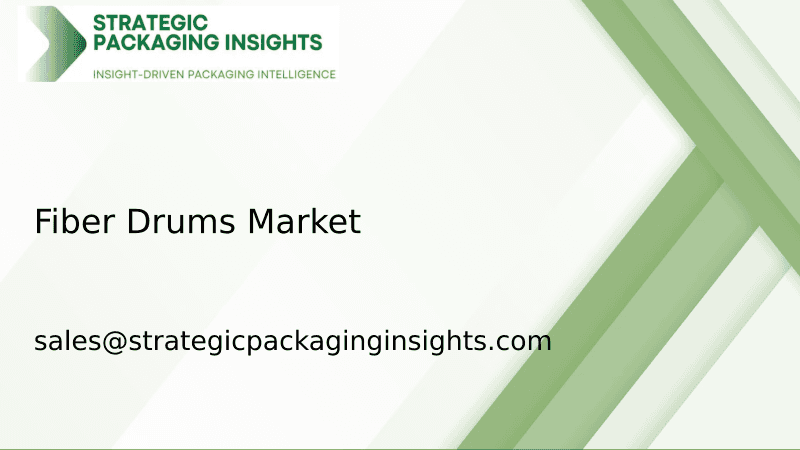
The fiber drums market was valued at $1.2 billion in 2024 and is projected to reach $2.1 billion by 2033, growing at a CAGR of 6.5% during the forecast period 2025–2033.

The cosmetics and perfumery glass bottles market was valued at $1.5 billion in 2024 and is projected to reach $2.3 billion by 2033, growing at a CAGR of 4.8% during the forecast period 2025–2033.

The medical devices packaging market was valued at $25 billion in 2024 and is projected to reach $40 billion by 2033, growing at a CAGR of 5.5% during the forecast period 2025–2033.
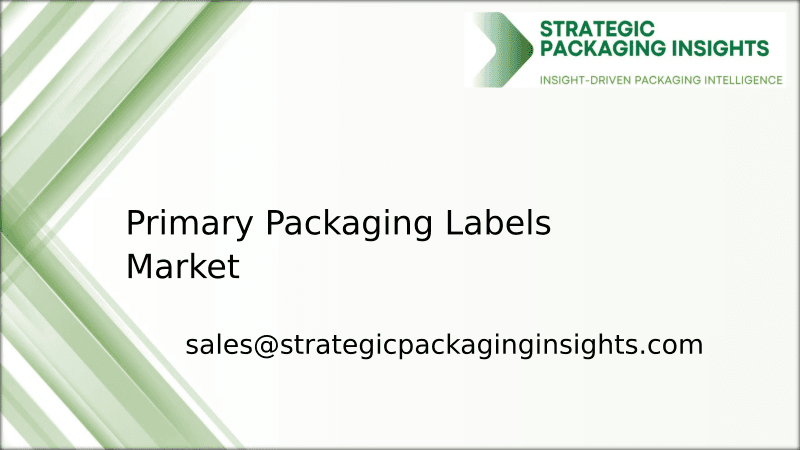
The primary packaging labels market was valued at $35 billion in 2024 and is projected to reach $55 billion by 2033, growing at a CAGR of 5.2% during the forecast period 2025–2033.

The corrugated board packaging market was valued at $250 billion in 2024 and is projected to reach $380 billion by 2033, growing at a CAGR of 4.5% during the forecast period 2025–2033.
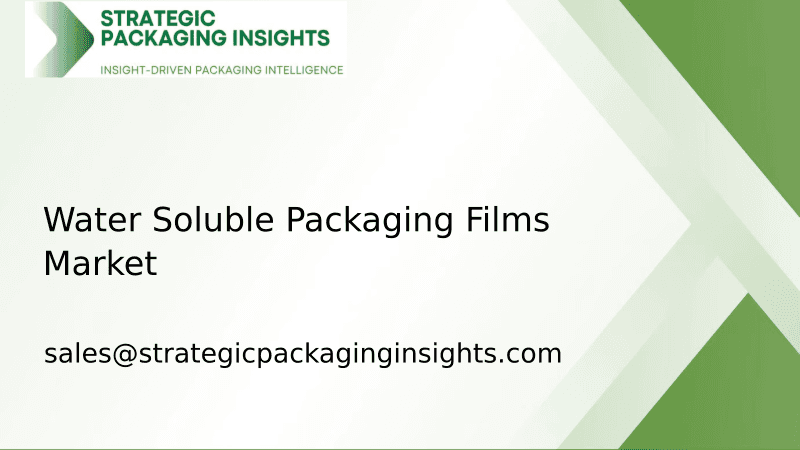
The Water Soluble Packaging Films market was valued at $2.8 billion in 2024 and is projected to reach $5.6 billion by 2033, growing at a CAGR of 8.1% during the forecast period 2025–2033.

The Aluminium Foil Packaging market was valued at $25 billion in 2024 and is projected to reach $40 billion by 2033, growing at a CAGR of 5.5% during the forecast period 2025–2033.

The self-heating food packaging market was valued at $4.5 billion in 2024 and is projected to reach $7.8 billion by 2033, growing at a CAGR of 6.2% during the forecast period 2025–2033.

The Smart Container market was valued at $2.5 billion in 2024 and is projected to reach $8.7 billion by 2033, growing at a CAGR of 14.5% during the forecast period 2025–2033.

The Automatic Labeling Machine market was valued at $2.5 billion in 2024 and is projected to reach $4.8 billion by 2033, growing at a CAGR of 7.2% during the forecast period 2025–2033.

The Hot Melt Glue Labeler market was valued at $1.2 billion in 2024 and is projected to reach $2.3 billion by 2033, growing at a CAGR of 6.5% during the forecast period 2025–2033.

The Ethical Label market was valued at $1.5 billion in 2024 and is projected to reach $3.2 billion by 2033, growing at a CAGR of 8.5% during the forecast period 2025–2033.

The Packaging Tensioner market was valued at $1.2 billion in 2024 and is projected to reach $2.3 billion by 2033, growing at a CAGR of 6.5% during the forecast period 2025–2033.
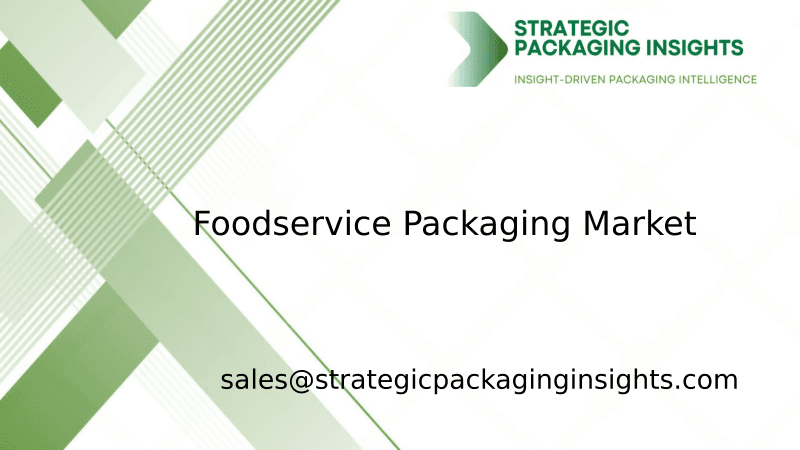
The foodservice packaging market was valued at $120 billion in 2024 and is projected to reach $180 billion by 2033, growing at a CAGR of 4.5% during the forecast period 2025–2033.

The nano-enabled packaging market was valued at $15.2 billion in 2024 and is projected to reach $35.6 billion by 2033, growing at a CAGR of 9.5% during the forecast period 2025–2033.

The Cold Seal Packaging market was valued at $1.5 billion in 2024 and is projected to reach $2.3 billion by 2033, growing at a CAGR of 4.8% during the forecast period 2025–2033.

The Transparent Barrier Packaging Films market was valued at $12.5 billion in 2024 and is projected to reach $20.3 billion by 2033, growing at a CAGR of 5.8% during the forecast period 2025–2033.

The Flatback Tape market was valued at $2.5 billion in 2024 and is projected to reach $4.1 billion by 2033, growing at a CAGR of 5.8% during the forecast period 2025–2033.
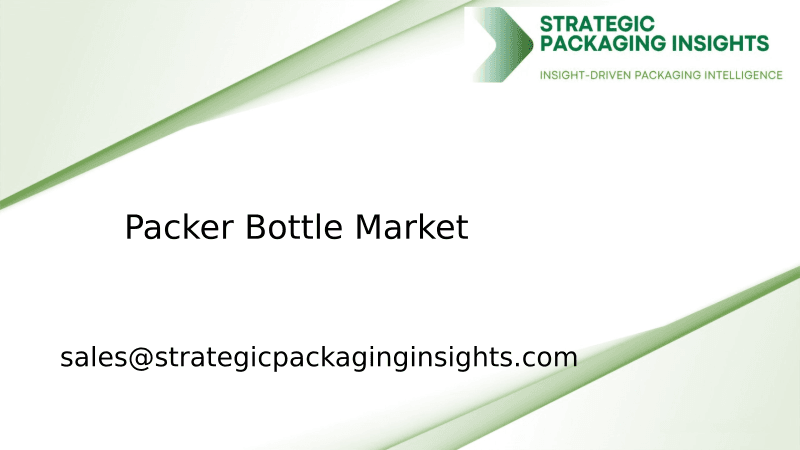
The packer bottle market was valued at $3.5 billion in 2024 and is projected to reach $5.8 billion by 2033, growing at a CAGR of 5.2% during the forecast period 2025–2033.
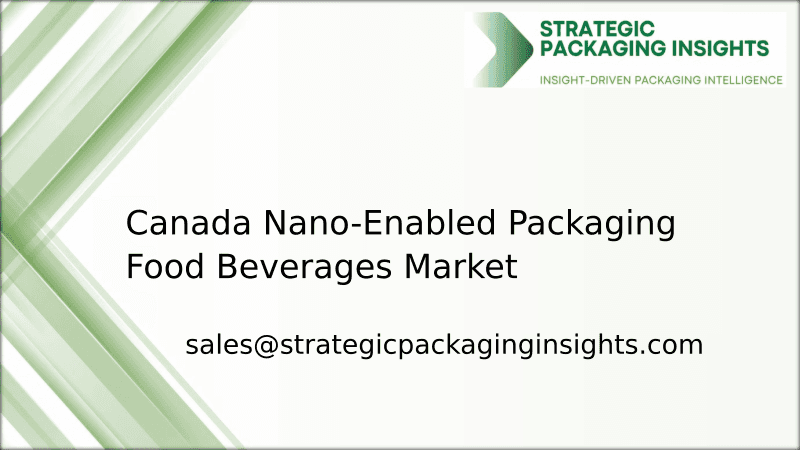
The Canada Nano-Enabled Packaging Food Beverages market was valued at $1.2 billion in 2024 and is projected to reach $3.5 billion by 2033, growing at a CAGR of 12.5% during the forecast period 2025–2033.
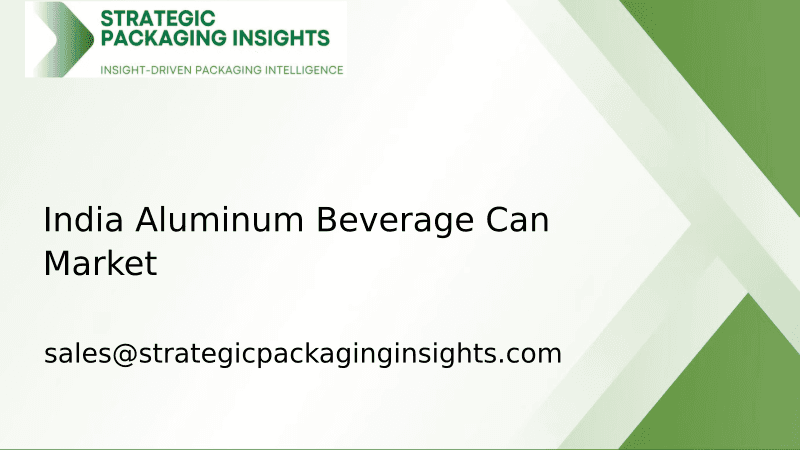
The India Aluminum Beverage Can market was valued at $1.2 billion in 2024 and is projected to reach $2.5 billion by 2033, growing at a CAGR of 8.5% during the forecast period 2025–2033.
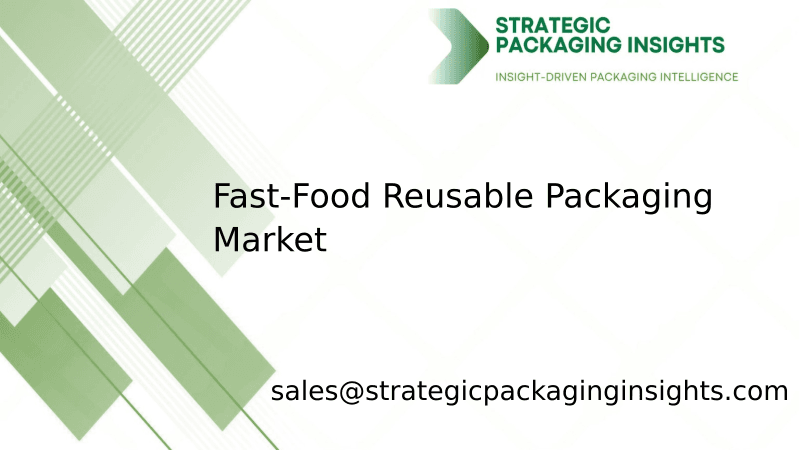
The fast-food reusable packaging market was valued at $1.2 billion in 2024 and is projected to reach $3.5 billion by 2033, growing at a CAGR of 12.5% during the forecast period 2025–2033.

The pallets market was valued at $59.91 billion in 2024 and is projected to reach $88.69 billion by 2033, growing at a CAGR of 4.5% during the forecast period 2025–2033.

The lamination adhesives market was valued at $2.5 billion in 2024 and is projected to reach $4.1 billion by 2033, growing at a CAGR of 5.8% during the forecast period 2025–2033.

The garment packing machine market was valued at $1.2 billion in 2024 and is projected to reach $2.5 billion by 2033, growing at a CAGR of 8.5% during the forecast period 2025–2033.

The fiber drums market was valued at $1.2 billion in 2024 and is projected to reach $2.1 billion by 2033, growing at a CAGR of 6.5% during the forecast period 2025–2033.

The cosmetics and perfumery glass bottles market was valued at $1.5 billion in 2024 and is projected to reach $2.3 billion by 2033, growing at a CAGR of 4.8% during the forecast period 2025–2033.

The medical devices packaging market was valued at $25 billion in 2024 and is projected to reach $40 billion by 2033, growing at a CAGR of 5.5% during the forecast period 2025–2033.

The primary packaging labels market was valued at $35 billion in 2024 and is projected to reach $55 billion by 2033, growing at a CAGR of 5.2% during the forecast period 2025–2033.

The corrugated board packaging market was valued at $250 billion in 2024 and is projected to reach $380 billion by 2033, growing at a CAGR of 4.5% during the forecast period 2025–2033.

The Water Soluble Packaging Films market was valued at $2.8 billion in 2024 and is projected to reach $5.6 billion by 2033, growing at a CAGR of 8.1% during the forecast period 2025–2033.

The Aluminium Foil Packaging market was valued at $25 billion in 2024 and is projected to reach $40 billion by 2033, growing at a CAGR of 5.5% during the forecast period 2025–2033.

The self-heating food packaging market was valued at $4.5 billion in 2024 and is projected to reach $7.8 billion by 2033, growing at a CAGR of 6.2% during the forecast period 2025–2033.

The Smart Container market was valued at $2.5 billion in 2024 and is projected to reach $8.7 billion by 2033, growing at a CAGR of 14.5% during the forecast period 2025–2033.

The Automatic Labeling Machine market was valued at $2.5 billion in 2024 and is projected to reach $4.8 billion by 2033, growing at a CAGR of 7.2% during the forecast period 2025–2033.

The Hot Melt Glue Labeler market was valued at $1.2 billion in 2024 and is projected to reach $2.3 billion by 2033, growing at a CAGR of 6.5% during the forecast period 2025–2033.

The Ethical Label market was valued at $1.5 billion in 2024 and is projected to reach $3.2 billion by 2033, growing at a CAGR of 8.5% during the forecast period 2025–2033.

The Packaging Tensioner market was valued at $1.2 billion in 2024 and is projected to reach $2.3 billion by 2033, growing at a CAGR of 6.5% during the forecast period 2025–2033.

The foodservice packaging market was valued at $120 billion in 2024 and is projected to reach $180 billion by 2033, growing at a CAGR of 4.5% during the forecast period 2025–2033.

The nano-enabled packaging market was valued at $15.2 billion in 2024 and is projected to reach $35.6 billion by 2033, growing at a CAGR of 9.5% during the forecast period 2025–2033.

The Cold Seal Packaging market was valued at $1.5 billion in 2024 and is projected to reach $2.3 billion by 2033, growing at a CAGR of 4.8% during the forecast period 2025–2033.

The Transparent Barrier Packaging Films market was valued at $12.5 billion in 2024 and is projected to reach $20.3 billion by 2033, growing at a CAGR of 5.8% during the forecast period 2025–2033.

The Flatback Tape market was valued at $2.5 billion in 2024 and is projected to reach $4.1 billion by 2033, growing at a CAGR of 5.8% during the forecast period 2025–2033.

The packer bottle market was valued at $3.5 billion in 2024 and is projected to reach $5.8 billion by 2033, growing at a CAGR of 5.2% during the forecast period 2025–2033.

The Canada Nano-Enabled Packaging Food Beverages market was valued at $1.2 billion in 2024 and is projected to reach $3.5 billion by 2033, growing at a CAGR of 12.5% during the forecast period 2025–2033.

The India Aluminum Beverage Can market was valued at $1.2 billion in 2024 and is projected to reach $2.5 billion by 2033, growing at a CAGR of 8.5% during the forecast period 2025–2033.

The fast-food reusable packaging market was valued at $1.2 billion in 2024 and is projected to reach $3.5 billion by 2033, growing at a CAGR of 12.5% during the forecast period 2025–2033.

The pallets market was valued at $59.91 billion in 2024 and is projected to reach $88.69 billion by 2033, growing at a CAGR of 4.5% during the forecast period 2025–2033.

The lamination adhesives market was valued at $2.5 billion in 2024 and is projected to reach $4.1 billion by 2033, growing at a CAGR of 5.8% during the forecast period 2025–2033.

The garment packing machine market was valued at $1.2 billion in 2024 and is projected to reach $2.5 billion by 2033, growing at a CAGR of 8.5% during the forecast period 2025–2033.
